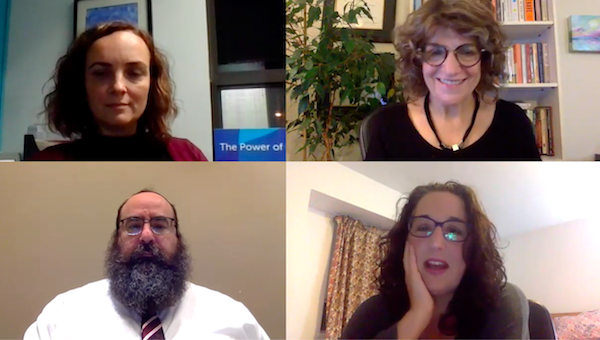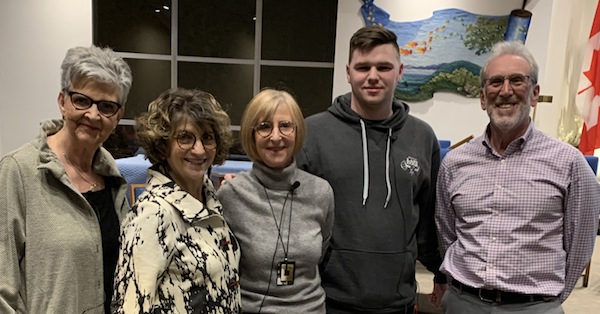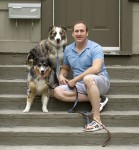Don’t let anybody tell you that recovery from knee replacement surgery is a walk in the park. It’s more like a hobble through hell. A very slow, frustrating, hobble with plenty of hurdles, pain and frustration. But, also, gradual victories and milestones.
My journey started off a bit rocky. One week before my knee surgery, I was diagnosed with severe sleep apnea and had to get a CPAP machine. Getting used to that is like getting used to having someone hold a pillow over your face while you sleep. And the apparatus itself – think Hannibal Lecter. Three weeks after my knee surgery, I had a bowel obstruction and landed back in the hospital for a couple of days.
As for the actual knee surgery, I had a spinal anesthetic and a nerve block. They also gave me conscious sedation, which, quite frankly, was my new best friend. Until I felt the surgeon cut into my leg, heard the electric saw they use to cut the thigh and shin bones, and felt the hammering. An unnerving experience, to say the least, and not one I’d care to repeat.
After surgery, in the recovery room, a young woman with black-and-green hair came over and announced that she was going to take an X-ray of my knee. As she leaned over me, the lanyard around her neck swung near my face. The strap on the lanyard said “Vancouver City Morgue.” I looked around, paused for a second, and said: “So, is this what hell looks like?” She corrected the misunderstanding and said the lanyard was a joke. I suggested she might want to remove it, lest she scare the next unsuspecting patient.
As for the process of recovery – I realize that each person’s journey is different and the most important piece of advice I can give someone going into knee surgery is this: do not, I repeat do not, compare your progress to others. While some well-meaning physiotherapists and other medical professionals suggested I might want to join a Facebook support group for people who’ve had knee replacement surgery, I strongly advise against this. There are people who will boast that they achieved a 90-degree bend in their knee two days after surgery, while others will bemoan the fact that it’s been 12 weeks and they still don’t have a 90-degree bend. Everyone heals differently and comparing yourself to others will only make you feel crummy. I speak from experience. Don’t do it.
Full recovery from a knee replacement is slow – they tell you it takes anywhere from six months to a year. If you’re an impatient patient like I am, it can be hard. Take the wins where you can, be thankful for every small step forward, celebrate the successes along the way.
Part of every knee replacement is the post-surgery physiotherapy. If I had to compare it to something, it would be like having a 350-pound bodybuilder sit on your newly operated knee, while bench pressing a Ford F-150 full of cement. It is the polar opposite of a pleasant experience. My physiotherapist happens to be a tiny but extremely muscular and strong woman. She’s only doing what she’s been trained to do but, from my perspective, it’s pure torture. Her goal is to get you mobile, bending your knee and active as quickly as possible. Even if that means making you cry and scream during your half-hour sessions. I always thought I had a fairly high pain threshold, but she blew that theory out of the water right at the get-go.
To be clear, I am the most compliant patient anyone could ask for. If my physiotherapist tells me to exercise two to four times a day at home, I do it. Sometimes, it pays off, sometimes it doesn’t. That’s where the frustration comes in. But then you get to a certain point where you wake up one morning and you think, “Hey, I can do the stairs more easily now. How did that happen?” To be sure, there are countless ups and downs during the recovery. The trick is to keep your eye on the prize and know that, at the end of it all, you’ll have a knee that no longer locks or gives out on you.
Recovery would have been much harder had I not had an incredibly devoted husband who did nothing but take care of my every need for more than two months. From helping me shower to doing all the grocery shopping, cooking, cleaning, laundry, driving me to physio and doctor appointments, running errands, and taking care of many other things, Harvey was my rock. He never complained but, not surprisingly, he was exhausted. He’s 74 years old and has some medical issues of his own. More than once I suggested we get a cleaning lady, or do more food takeout, but he wouldn’t hear of it. He recently relented on the food takeout, I’m happy to report.
Here are a few things I’ve learned from this whole experience:
- Give people what they need and want; not what you think they need and want.
- Always express your gratitude for kind gestures, large and small.
- Pay the kindness forward wherever and whenever you can.
- Use whatever resources are available to keep calm, distracted and positive during the recovery process.
- You don’t need to fight every fight. Choose your battles and conserve energy.
- Help others as you would want to be helped.
- Struggle is optional.
At age 67, I feel like the past few years, with their accompanying health challenges, have been one long audition for old age. Turns out there’s good news and bad news. The good news is that the audition is over. The bad news is that I got the starring role.
Shelley Civkin, aka the Accidental Balabusta, is a happily retired librarian and communications officer. For 17 years, she wrote a weekly book review column for the Richmond Review. She’s currently a freelance writer and volunteer.



